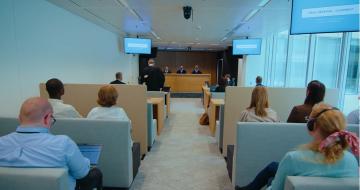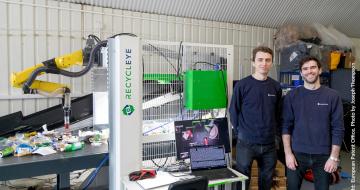Why a compensation for reprography?
The law allows paper copies of books (only extracts may be copied), articles, drawings or photographs, with the exception of sheet music. Such copies can be made without the authorization of the authors or publishers, provided that they are made for private or professional use, or for education and research. If one wants to copy for other purposes, or if one wants to copy a book as a whole, the he authorization of the authors and publishers must be obtained, however.
As a compensation for the fact that their authorization is not necessary, authors and publishers are entitled to a compensation. For photocopies made for a purely professional purpose, the authors receive a so-called “reprographic remuneration”, while publishers receive a separate remuneration for photocopies of their publications on paper. The copies made for private use or for teaching and scientific research fall under an exception other than the exception for reprography. Consequently, different rules apply with regard to compensation for these exceptions. (See the remuneration for private copy and the remuneration for illustration for teaching or scientific research).
The collective management organisation Reprobel has the task of collecting this remuneration and then distributing it among authors and publishers.
The remuneration for reprography of authors is a proportional remuneration, which is in principle paid by natural and legal persons who make photocopies of works.
The remuneration of the publishers for photocopies of their publications on paper is also a proportional remuneration. As with the remuneration for reprography of authors, this must in principle be paid by natural and legal persons who make copies of works.
Within the framework of these remunerations, Reprobel sends a request for payment every year to companies, legal entities and public institutions, assuming that they make photocopies of copyrighted works. The amount to be transferred to Reprobel is calculated on the basis of an estimate of the number of copies of protected works. If the contacted person proves that he is not making any copies of a protected work, no remuneration is due.
At Reprobel you can find out about the practical details of the collection and the rates used.
The amounts are determined by Royal Decree. Those decisions also provide that an independent body must regularly (every six years) carry out a reprography study in order to obtain objective data on copying. The Advisory Committee on Reprography was set up to advise on the amounts of the remuneration, so that the King can adjust the rates to the evolution of copying practices.


